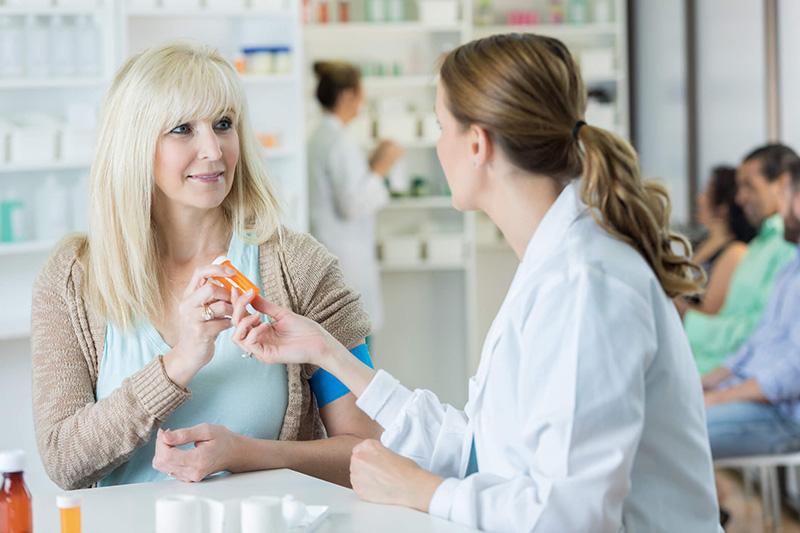药物管理

If taking medication is new to you, there may be a lot to remember. 你可能有问题. 例如:
- 你为什么要吃药?
- 你应该什么时候去?
- How often do you take it, and how many pills should you take?
- 你能和食物一起服用吗?
- 可能的副作用是什么?
You play a key role in developing your medication treatment plan. You should work closely with your health care team to do so. These could include a primary care professional, cardiologist, nurse, pharmacist and others.
To get the most benefit from your medications, it’s important to take them exactly as prescribed. If medication isn’t taken the right way, it may not work properly. It also could cause side effects or you could counteract one medicine by taking it with another.
Medication has come a long way in helping us lower our risks of heart disease by managing 高血压,降低 胆固醇 水平和帮助预防 中风.
But you have an important role in making sure those medications work.
让你的药物更有效
Here are some tips for helping your medication work more effectively.
- 按医嘱服药. Be sure to follow all the instructions for taking your medicines. Don’t skip or take more of the medicine as this may cause harmful effects. Tracking your medication in an online tool can help you keep track and set reminders to take your medication(s).
- 安排好你的用药. It isn’t unusual for heart patients to have several different medications, 使跟踪变得困难. Learn ways to manage your medication and keep track using easy tools or our 可打印的药物追踪器(PDF). You also can use a pill dispenser that helps sort your medication or a weekly pill organizer.
- Take your medicine even if you don’t have noticeable symptoms. When you have the sniffles or a fever, you know you’re probably sick. But many cardiovascular conditions don’t have symptoms that you can identify without a medical test or blood pressure reading.
- Continue taking medicine even if symptoms seem to have “gotten better.” People may discontinue their medication once they have improved their 胆固醇 or blood pressure numbers. 然而, the medication may be what is making the 胆固醇 or blood pressure levels go down, 如果他们停止服药, 它们的数量又回升了.
- Tell your health care professionals and pharmacists about all the medications you are taking. Drug interactions can change the way a medication works, 使其更有效, 效果更差或更糟, 混合成一种危险的混合物. Maintain a list of all the medications you’re taking, including drug names and dose. Many people won’t mention a drug they take because it’s not a heart medicine. The prescriber needs to know about all the other drugs you’re taking.
- Make sure your health care professionals and pharmacists know about other supplements or over-the-counter drugs you may be taking. Your health care professionals need to have the whole picture of what you’re taking so they can create a plan for the most effective treatment and identify possible interactions. Inform your health care team of all the over-the-counter drugs and herbal and/or nutritional supplements you are taking, 包括名字和剂量. If you have 高血压 and are on prescription medication, consult your health care professional before taking any 非处方药物 或补品.
- 注意任何食物的相互作用. Check whether your medication should be taken on a full stomach or an empty one. 这可能会影响你的身体吸收它的能力. 你吃什么和喝什么也会有很大的不同. Drinking alcohol, for example, could change how well your liver processes medications. Even eating healthy can sometimes create a dangerous interaction between your medication(s) and the food and/or beverages you consume. 了解更多关于 食物和药物的相互作用.
- 注意潜在的副作用. Medication routinely comes with detailed information about possible side effects. Familiarize yourself with the major ones and stay vigilant when starting a new medication so you can quickly identify bad reactions. 胃不舒服, dry mouth and drowsiness are common medication side effects, but many people don’t realize they may be coming from a medication. Be sure your health care professional knows if you’ve had any bad reactions or allergies to medication.
药物治疗只是治疗计划的一部分.
Taking medication as directed is important, but it’s not the only action needed. 生活方式的改变, 比如遵循有利于心脏健康的饮食习惯, 不吸烟,锻炼身体, 发挥关键作用,让你的健康回到正轨.




